Advertisement
Want To Start A Revolution? Nathaniel Philbrick Talks ‘Bunker Hill’
“Because a revolution gave birth to our nation, Americans have a tendency to exalt the concept of popular uprising,” Nathaniel Philbrick writes in his book “Bunker Hill: A City, A Siege, A Revolution,” which was published this spring.
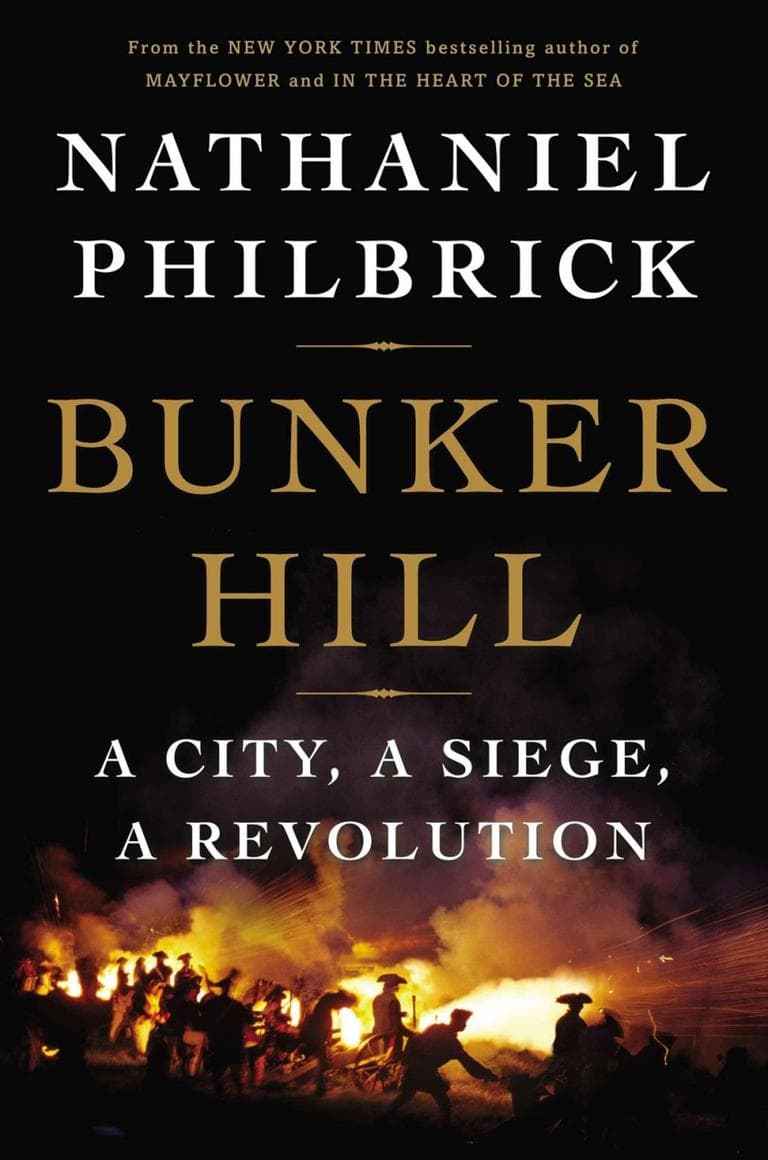
In his previous books ”In the Heart of the Sea,” “Mayflower” and “The Last Stand,” the National Book Award-winning Nantucket historian has looked at New England whaling, the Pilgrims and George Armstrong Custer’s end at the Battle of Little Bighorn. This time, Philbrick retraces the road from the Boston Massacre to the battles at Lexington and Concord to Bunker Hill—which, of course, actually took place on Breed’s Hill, the next rise closer to the British army then in Boston.
Philbrick notes that we tend to focus on the Founding Fathers debating democracy and liberty at the Continental Congress in Philadelphia. As we approach Independence Day, I interviewed him recently about the central subject of his book—how the Revolution was launched, day-to-day, on the ground here around Boston. (The order of some of the questions has been rearranged.)
How did the Patriots pull it off?
“I think we grow up with a sense that it was all was an ideological-philosophical discussion happening at the Continental Congress and somehow that became the Revolution. That’s not how revolutions work. There’s violence, there’s organization when it comes to making it happen. So I really wanted to write this book about what happened in Boston, who were the people behind it, how did it work, and what was going on. Lo and behold it’s a cast of characters that most of us haven’t heard of since John Adams, Sam Adams and John Hancock are usually off site when stuff is happening. I ended up focusing on 33-year-old Dr. Joseph Warren, who ended up really being the guy who is the one—if there is one—behind it all. For me it was, okay, the American Revolution was a revolution. I think we like to think of it as ours was somehow different, less violent, more of a philosophical choice than an act of overthrow. When you look at it there was a lot of organization and ultimately violence behind it.”

You write that the Patriots really wanted to preserve a status quo, but that status quo was—partly because of their geographic distance from England—their autonomy and freedom.
“I think it speaks to the unexpectedly conservative impulses behind the initial Revolution. What Paul Revere and all these guys were saying was they didn’t want the newfangled thing, and ‘newfangled’ was the word that was often used for measures that Great Britain was trying to institute by getting us to pay for stuff. Britain was the one moving in the modern direction. And New Englanders had more than a century of living pretty much by themselves without much taxation or supervision from the British government. Descended from Puritans who had come here to get beyond the reach of the king and his bishops. That’s where they were. And here’s Great Britain after the French and Indian War trying to deal with a tremendous debt, trying to retool their empire so that it makes fiscal sense. That’s when the Patriots say, whoa, wait a minute, we want no part of that. What changes it all is it’s not just a fight to preserve what it was, this is a fight to become independent. That makes it different and provides a whole new level of juice and potentiality to the discussion. I think we have a tendency to remember it at that relatively late stage.”
Advertisement
It seems like there’s a split where they can’t just work under this system anymore.
It’s actually the loyalists who see where it’s all headed in the beginning. Royal Governor Thomas Hutchinson says, well, if you say this in terms of representation, then you’re saying that Parliament does not have sovereignty, and if you say that you’re talking about independence. And the Patriots all said, oh no, we’re not talking about independence. But the fact of the matter was if you’re going to push this to its logical conclusion that’s what you’re taking about. It becomes a gradual process of the Patriots, because they’re opposed by the British, being driven to that conclusion. With Tom Paine saying, let’s just do it, you finally get the Declaration of Independence.”
For any sort of revolt or protest moment to be successful, people sometimes argue that the people in power need to either be tolerant of it to allow it to get off the ground or to be weakening. Here the British government and its military were trying to not have a war develop.
“They had a combination of factors that worked into the Patriots’ hands. They over responded to the Tea Party with the Boston Port Act and then Massachusetts Government Act, which gets everybody angry. And then because it’s England—and of course, we’re all English at this point—they have a natural respect for people’s English liberties. So even though they’re trying to clamp down on the revolution in Boston, they’re giving the Patriots a lot more freedoms than I think most of us realize happened. You see the Patriots sending out gunpowder, musket balls, weapons, right in the face of the British. [British General Thomas] Gage, because there’s no martial law, feels he can’t interfere. It’s almost absurd in a way, at least that’s how he felt it was. That instance where some Patriots are trying to float out a cannon on a raft at night. The tide goes out and it gets stuck on the mudflats. The British navy quite rightfully confiscates it. But what does the Patriot owner do? He takes them to court and actually wins and gets the cannon back. I think it’s underappreciated that, yeah, the British overacted, but then when it came to really clamping down, they didn’t have the ability when it came to the country towns because they didn’t have the soldiers to be out there, and then when it came to Boston, they really let them run rings around them because they had a legal apparatus in place that respected the colonists English liberties. It’s an interesting combination of factors that allowed the Revolution really to happen.
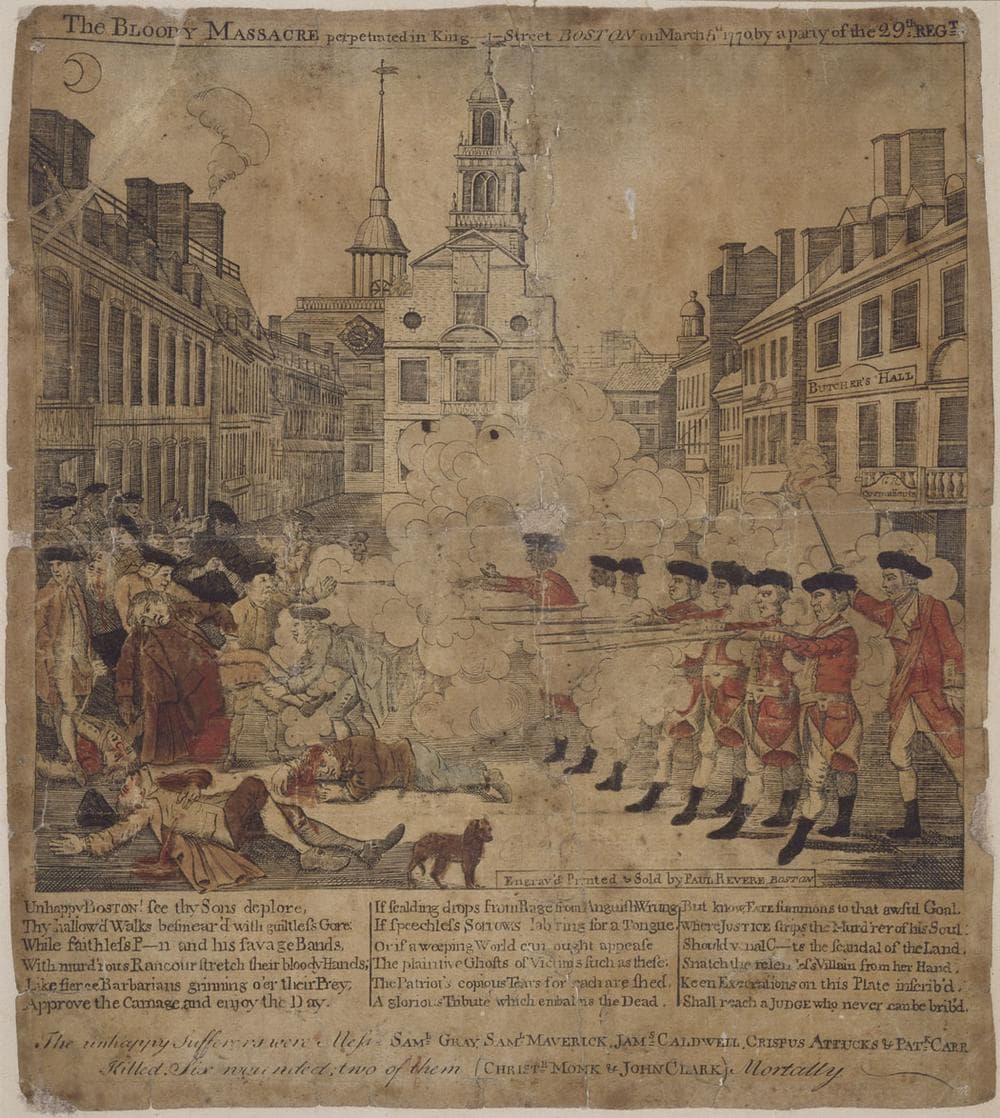
You talk about the Patriots’ efforts to control the message.
“Controlling the message they realized from the Boston Massacre because the British got the first version back to England and it didn’t put the Patriots in a good light, basically it was a mob uprising. They realize, ‘We really have to get our ducks in a row.’ [After the Battles of Lexington and Concord,] they not only get their own account, but they interview people. So they have transcripts of interviews that then provide the basis of what is delivered [to England]. Then they make sure they get a fast vessel. What was interesting to me was how calculated it all was. There are elements of it that were out of control, that no one was controlling obviously. But there was real effort to put a spin on it, to use the modern. They really understood the fact that getting that message first and from their perspective was very important.”
Basically their argument was that the British were repressing them, so when the British would respond to their revolutionary acts to repress them, it just fed into their argument.
“That was what was driving the British Ministry crazy. ‘Okay, you’re going to be jerks, well then we’re doing to respond.’ Hindsight is a wonderful thing. You can look back and say, ‘Well, this didn’t work, you should have tried this.’ But you never know quite really would have worked. You see [British] General [William] Howe proposing this in the middle of the siege [of Boston]. Well, he says, maybe the best policy here would be not to fight them, but to just pull out our soldiers, let them argue among themselves and then eventually come back to the empire. I think this is underappreciated: our revolution happened because we had someone to blame all the bad stuff on. And they played that role perfectly, getting upset and working it to the Patriots’ advantage every time. Just when things are beginning to settle down, people are getting complacent, something would happen to anger people. I think that is one of the ironies. If Britain had just said, ‘Okay, relax here, you guys tell us how you want to pay for it [French and Indian War debts], fine, ’ we might still be part of the British empire. We might be like Canada today. It was the fact that they said, ‘Whoa baby, we have sovereignty here. What Parliament says goes.’ That’s what pushed us to what became the edge. It’s an interesting process by which it kind of fed on itself.”
A significant number of the Patriots had experience fighting with the British against the French and the Native Americans. So they had a sense of successful British methods as well as successful Native methods to use against the British.
“You see it in Lexington and Concord. Many of the older officers had been there in the French and Indian War and so had spent some time fighting alongside British regulars. And seen how that side of works, and knew how to organize troops in that way. But on the other side, they had a tradition that went back into the 17th century of fighting in Indian warfare. Which was completely different. It was using the landscape to your advantage, not two armies meeting on a field, but going at it in the woods. So they had both those skill sets. Not everyone because many of them were young farmers who had never really done this. But the older ones had that kind of experience. So you see, for example, [British] General [Hugh] Percy there going, whoa, man, these guys are more skilled than we give them credit for, and they’re skilled in a way that we don’t really get yet. It was a surprise for them. Then the real surprise, I think, came with Bunker Hill, the battle that changed everything. It wasn’t just a skirmish, this was a war. The hope, even after Lexington and Concord, was that these farmers if presented with the sight of 2,000 regulars coming at them with a bayonet charge, they’re going to run. Of course, they didn’t run. And that was the final, okay, we’re in for something much more than quickly suppressing a rebellion, this is going to be a long-term war.”
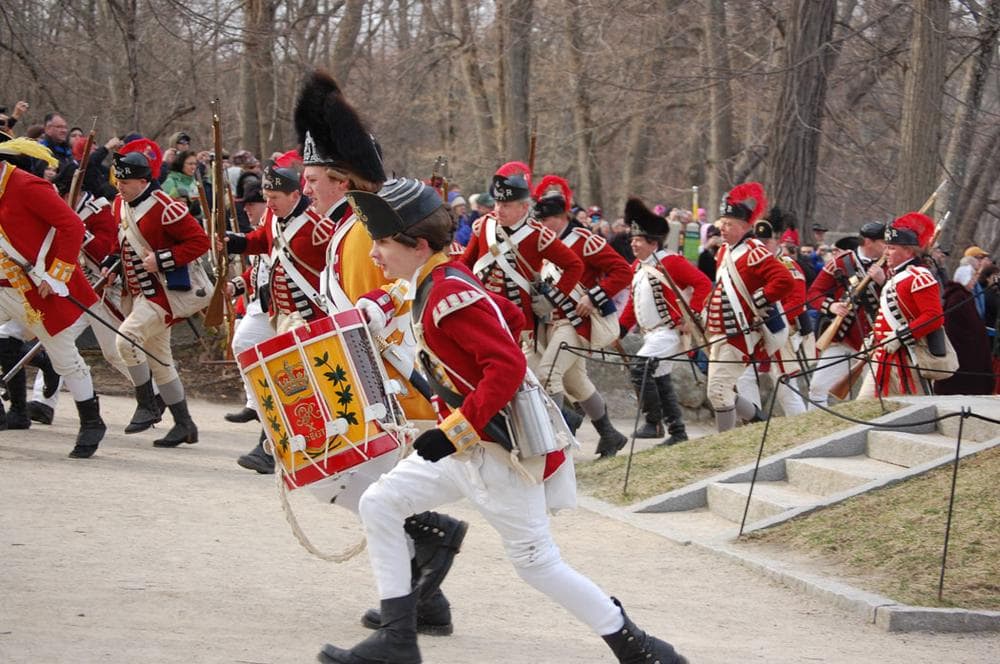
In your description of Bunker Hill and Breed’s Hill, it’s almost like the beginning of the battle on the Patriots’ side is being edited in Wikipedia. One guy comes in and does something; the next guy comes in and says, no, this is not right and does something else; then a third guy comes in and edits that.
“You get [William] Prescott who messes it all up. He builds the fort on the wrong hill and creates a firestorm. What he was ordered to do was to build on Bunker Hill something that would be a good defensive structure if the British would attack. And make them delay that attack. But it wasn’t something meant to provoke anything. But by marching a half mile further to the south and building a fort on Breed’s Hill right in the face of the British, suddenly the British feel like, well, we’ve got to attack because any cannon there can go after our warships and even get our city [Boston]. Was it a calculated decision to provoke them? It clearly was a surprise to Artemas Ward, the provincial leader back in Cambridge. So he builds this, dawn comes, he goes, oh, the British, if they land on the tip of Charlestown peninsula, they can just come at my left, I better build a breastwork. So he starts doing that. Then others arrive and realize, oh my gosh, there’s still plenty of space towards the Mystic River. They build the rail fence. Then John Stark, the colonel from New Hampshire, arrives right at the very end, the British have already landed, they’re about to attack. He goes, whoa, baby, if they can send some guys along the beach and get behind our lines then we’re finished. He builds that stone wall. It’s this collective act of improvisation, which is a lot like a Wikipedia article, where the first attempt, at least the beginning can be pretty lame, but others can correct it and build upon it. For me, that’s another kind of metaphor for America. We don’t necessarily get it right the first time, and it’s messy, it’s chaotic, but somehow this collaborative effort has a surprisingly good result. Poor Gage and Howe, who think they’ve got one situation, this earthen redoubt on Breed’s Hill that’s wide open to the left. Suddenly that’s not that way anymore. It made the Patriots a very challenging enemy.”
The British generals want to look at it as if somebody’s in charge and there’s one mind giving it an overall organization. Because of the disorganization, it’s confusing to a logical response.
“The British were accustomed to and they were very successful at fighting other traditional European armies. When you fight a traditional European army, you can assume if they do one thing, you respond one way, they will respond the other. You’re using the same vocabulary almost. The fact of the matter was the Battle of Bunker Hill begins with basically a mistake and then it’s a collective attempt to right that wrong. And it’s very hard to read because initially you would think, if you’re the enemy, that the initial move was the intended move. So it immediately sends out a deceptive message. So it’s kind of a confusion that works to the Patriots’ advantage ultimately. It was frustrating and surprisingly effective when it came to combating a traditional European military power trying to figure it all out.”
Howe gets turned back at Breed’s Hill and then you describe him as losing the will to fight in that battle and subsequently. Why?
“I think it really came to the fact that Howe had been a political moderate before he even came to America. He, in fact, as a member of Parliament had spoken against a war with the colonies. Even the most stalwart defenders of the crown had difficulties waging war against their own subjects. I think it spoke to that. It’s just hard to fight your own people, particularly if they are fighting for freedom. In the Civil War, there was the slavery issue to provide it with a real moral edge. Here, it wasn’t that way. I think Howe didn’t feel good about it in the beginning and then to lose so many men [at Breed’s Hill], 50 percent casualties. It’s absolutely horrific. Then to be there as he was. He had everyone in his staff cut down. And he’s left all by himself. He was literally leading this army. It got him from several sides—from a sort of philosophical side, who am I fighting against, and a personal side where I’ve lost all these men in what is a kind of a pointless victory because, yeah, we get this, but so then so what, we’re still stuck in a stalemate. I think it messed with his head. This Revolution over the eight years of it would mess with a lot of British officers heads. There’s not a single officer who really came out of the Revolution with their careers enhanced by this battle. No one felt good about it. It’s kind of like Vietnam was like. World War II had been the good war, where everyone could feel that they had right on their side. Vietnam was not that way and as a consequence it was just a miserable war to be involved with. I think there was that same kind of morale issue with the British army in Boston and then later on throughout the Revolution.”
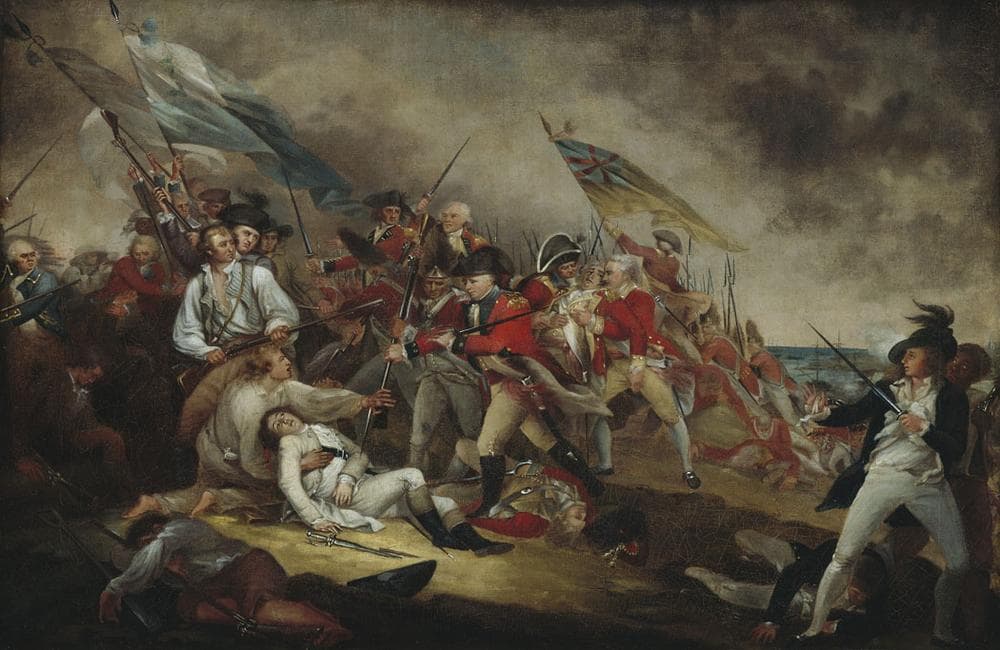
You note that there were very few Bostonians in the Continental Army that George Washington forms once he gets here.
“The Sons of Liberty, the radicals, along with Samuel Adams and Paul Revere, those guys who were there at the beginning, the rabble-rousers, kind of the vigilantes of the early Patriot movement turned out not to be the kind of people who functioned well in the traditional hierarchical army that Washington was trying to put together. Guys like Paul Revere, I cite that letter of his saying there’s so few of us in this army. I think that’s very interesting—that what makes a good revolutionary, someone who is defiant in the face of authority, does not necessarily make a good soldier. Because you have to take orders, you have to let someone else be in charge. It’s a very different skill set. Looking beyond the Revolutionary War, when it comes to building a nation after a revolution, you don’t see those revolutionaries, the ones that were in the streets in Boston necessarily taking a leadership role, with the exception of John Adams, for example. But John Adams was not one of those rabblerousing Patriots, he was different. Those rabble-rousers just didn’t come to the fore.
You’re describing a split between the street activists or street brawlers and the politicians. Because it seems like many of the politician types end up becoming significant leaders, like Hancock and Elbridge Gerry.
“You’re absolutely right. It’s interesting though. Yeah, there were a lot of New Englanders who made it into the higher ranks of national politics later on. But when it came to the army that was over. It would definitely be a different group.”
These kinds of movements seem to require people at the beginning who are willing to do impolite things in public in a way that is generally frowned upon and dangerous. That ability, when there are few people obviously on your side, to begin to speak out or act out against it reflects an individualism that’s hard to corral.
“I think it also speaks to the American spirit where we have this almost sanctification of the individual—the gunslinger, the cowboy, the one who breaks the rules and yet has a moral vision. … Joseph Warren, he comes to the top fairly late. It’s been 10 years of rabblerousing. And there’s been a whole group of guys, many of them begin to die, like William Molineux, who never makes it. It’s funny. To get something going, it takes someone who is kind of abrasive and might have social issues. If they’re lucky enough to latch onto some ideological cause that gives them some kind of justification, but once it builds into something that is going to go beyond tearing something down and building something up, they’re not the best people for that. It’s more the bean counters, it’s more the consensus-builders, it’s more the people with social skills. That’s the way it is with these kinds of movements. It’s very interesting to see what personalities flourish when. That’s what’s interesting about Washington, he’s someone you see actually change his behaviors to meet different situations. It’s rare that you find people who have the ability to do that. Most of us tend to be who we are and we’re sort of locked into it and there’s not much we can do about it. There are a few who have enough whether it’s self-confidence or indecisiveness to adapt. It’s a thin line between squishiness and adaptability, I guess.”
You suggest that because of the geographic separation of the colonies and the population growth that was happening, a separation was coming no matter what.
“That was the demographic reality here. You’ve got 3,000 miles of ocean between a small island and a huge continent where the population is doubling every 20 years. There are going to be more Englishmen in the American colonies soon than in Great Britain. You can’t dictate to them unless you have the ability to dictate to them, and given these demographics, you don’t really have the ability to dictate to them. So that’s there. But also working on the other end was even radicals like Sam Adams and Joseph Warren had this tremendous innate love of country. So that’s making them say, oh no, we’re not saying that even though that’s true. It’s a gradual process of sort of, okay, so this is it. If Great Britain had allowed the colonies to figure out how they were going to pay for their upkeep on their own, perhaps we would be like Canada and we’d still be treasuring our British connections and yet still be allowed to do it pretty much as we wanted to. The issue was forced and here we are.”
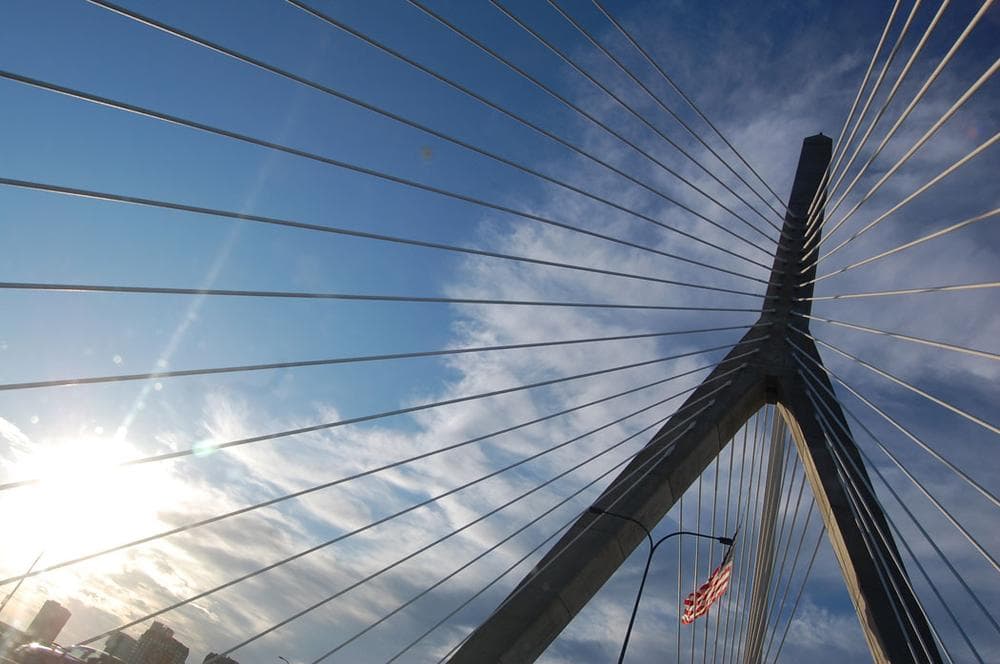
This article was originally published on July 02, 2013.
This program aired on July 2, 2013. The audio for this program is not available.
